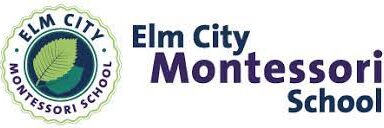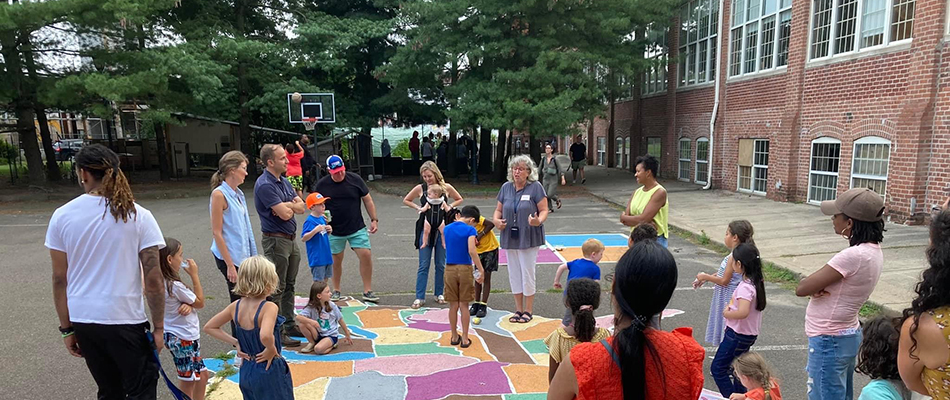1. Does Elm City Montessori follow the state curriculum standards?
Yes. ECMS adheres to New Haven Public Schools and Connecticut State expectations related to the Common Core State Standards, and we administer computerized national and state assessments aligned with the Common Core (Smarter Balanced Assessment and NWEA Map) as well as internal benchmarking assessments in both reading and math. We use this information to both support individual students and to improve our instructional presentations and practices. The results of these assessments are shared with families.
2. Is there a sibling preference in the school placement process?
Yes. Siblings applying together in the current NHPS school placement process must be listed on the same application form in order to receive sibling preference. If one sibling is admitted to our school, the other sibling will be given preference for seats available.
Siblings of current students will be given preference in the school placement process as long as enrolled siblings are identified in the application.
3. Do I have to reside within a certain New Haven neighborhood to attend Elm City Montessori?
We do not currently have a neighborhood preference.
4. What are my chances of admission?
We don’t know, and we wish we could offer slots to everyone who wants to attend ECMS. The majority of our available seats are in PreK3, but we sometimes have some openings at other grade levels.
5. Does my child need previous Montessori experience to attend Elm City Montessori?
We welcome all children in our Montessori program. Our experienced teachers will ensure that children with and without Montessori experience are given a gradual introduction to the Montessori approach and the classroom community.
6. What are the hours for your program?
Children arrive at school between 8:45am and 9am. The Primary program is dismissed between 3:15pm and 3:30pm, and the rest of the school is dismissed between 3:30pm and 3:45pm.
7. Is programming available before and after school?
We have morning and afternoon extended day programs available that run from 7:30am to 8:45am and 3:45pm to 5:30pm, respectively. There is a modest fee for participation in these programs.
8. Is transportation provided?
Transportation is provided by New Haven Public Schools for children who will be in Kindergarten.
9. Will meals be provided for my child at Elm City Montessori?
As a New Haven public school, Elm City Montessori School provides breakfast and lunch daily for all students at no cost to families. Children may also bring their own lunch from home, provided it meets the criteria outlined in the Family Handbook.
10. What is a local charter school?
Elm City Montessori is a local charter school which means our charter is approved by both the New Haven Board of Education and the Connecticut Department of Education. The majority of our students are New Haven residents, fulfilling our mission to increase school options to New Haven families. As a local charter, we collaborate closely with the school district while maintaining autonomy to implement an authentic and Anti-Bias Anti-Racist (ABAR) Montessori curriculum. The Elm City Montessori School Board of Trustees is responsible for the governance of the school.
11. Do you charge tuition at Elm City Montessori School?
No, Elm City Montessori is a public school, tuition-free for all students.
12. What is Elm City Montessori School’s approach to Standardized Testing?
At Elm City Montessori School, we believe that all children can reach their enormous potential academically, intellectually, socially, emotionally, and physically with the right environment and support. We believe that standardized testing measures only one small piece of our children’s potential. We do not believe in “teaching to the test”. Instead, we believe in preparing children to do well on the test by ensuring that every objective has a corresponding Montessori material, so that children learn everything in an authentic, meaningful way. Further, children will take practice state assessments throughout the year, so we can monitor and measure their progress objectively and help them feel ready on test day. We use standardized testing as an opportunity to prepare our children to feel comfortable and confident on future tests for college, such as the SAT, ACT, Advanced Placement, International Baccalaureate, etc. At ECMS, we administer NWEA MAP reading and math assessments (K-8), F&P reading tests (K-8), and state testing (ex. Smarter Balanced Assessment (Grades 3-8).
13. I have heard that Montessori allows students to choose their own work. What is my child only wants to read all day and starts to fall behind in other subjects?
It’s a misconception that Montessori is where children do their own thing. The curriculum is highly structured, and students are expected to do a full sequence of all subjects. Children get three main choices in a Montessori classroom – they get to choose what order they want to work on their lessons, they get to choose where they want to work, and for how long. Our learners use developmentally appropriate structures, such as planners, daily work logs, and conferences, to both ensure that they are completing work across the curriculum and building their own executive functioning skills.
14. Will my 5-year-old be challenged in a classroom with 3- and 4-year-olds?
While 5-year-olds are in a class with younger students, they do challenging work because they get individual lessons catered to their needs. Both our Primary and Elementary classrooms are equipped with Montessori materials suited to both advanced students and those who may need more time in particular areas of the curriculum. In addition, our Kindergarten students spend their afternoons in the classroom as a small group (6-10 children), while younger students nap, giving them additional time to do advanced work with support from their Guide (lead teacher).
In a Montessori classroom, if your child can already read, they will continue from there. If they are still learning letters, they will start from there. The Montessori curriculum meets your child where they are. It is common to see 5-year-olds in a Primary classroom writing in cursive, reading, and knowing numbers into the thousands. Additionally, mixed aged classrooms allow for older students to be academic leaders. Older students have the opportunity to practice and hone their skills by demonstrating work to their younger classmates. This mentoring process builds increased academic skill and independence.
15. Will Elm City Montessori School accommodate children with special needs?
We are committed to meeting the needs of each child who walks through the door and will provide the same special education services as any other district school. In addition, we pride ourselves on a child-centered approach. Our multi-age approach gives added flexibility to a child with special needs.
16. How will Elm City Montessori School approach educating children who are English Language Learners/Multilingual Learners?
In a Primary environment, every child is an English Language Learner. In fact, we are all English Language Learners! The Montessori approach meets every child where they are; we provide instructional support and professional development aligned with students’ needs. As with every material, those designed for instruction in English will be introduced to each child as they demonstrate competency with previous lessons. Multilingual learners in public Montessori schools have an excellent track record in this regard. (References: https://www.public-montessori.org/wp-content/uploads/2016/12/Montessori-Bilingual-Brief.pdf, https://www.international-montessori.org/en/bilingualism-multiligualism/) Additionally, we provide translation and interpretation services for families as needed.
17. How do Montessori students adjust when they move on to more traditional schools?
One of the greatest benefits of a Montessori education is that students learn self-discipline, curiosity, and critical thinking. These skills allow them to adapt to a new environment, maintain strong study skills and become innovative thinkers. Here is a compilation of research about student outcomes at public Montessori schools. While it is normal for Montessori students to have a small adjustment period learning the expectations of a different school, they quickly thrive.

